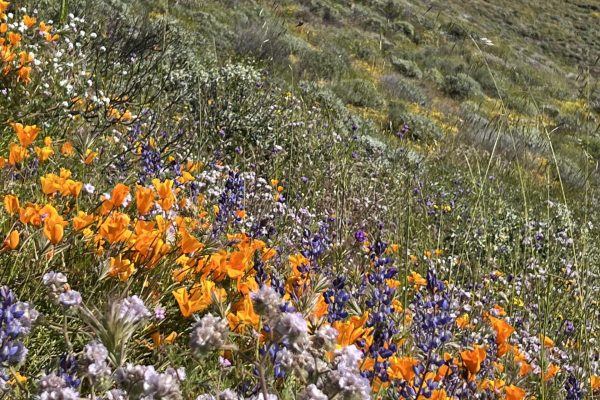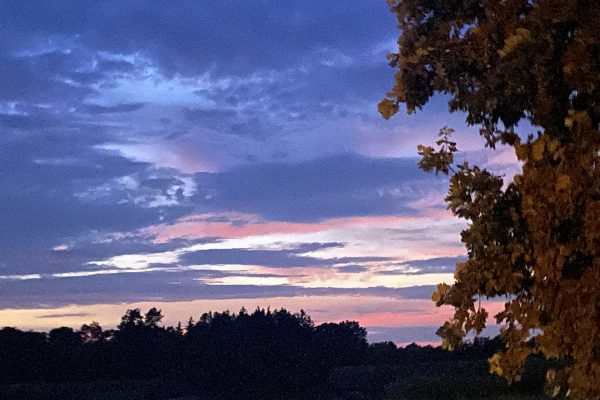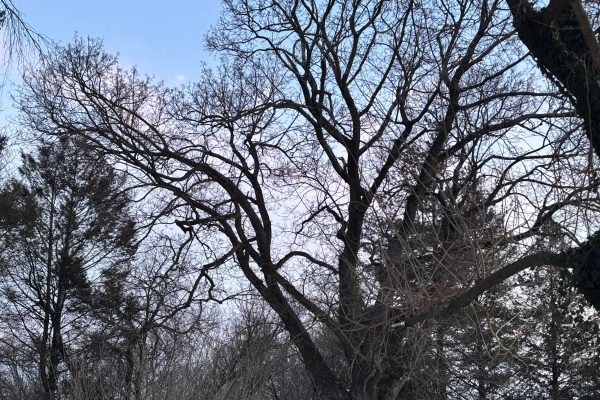The following conversation between God and Rachel is based upon Chapter 31 of Jeremiah, which is traditionally read as the Haftarah on the second day of Rosh Hashanah as well as traditional midrashim.
Rachel: God, Adonai, are you there?
God: Yes, Rachel. I am here. How can I help you?
Rachel: I am angry at You. You shared a vision with Jeremiah and me that showed how the Israelites will be sent into exile and Jerusalem will be in ruins. Why? Why make my descendants suffer like that?
God: I know that it will be painful. But there are consequences to actions. They will participate in acts of sinat hinam—baseless hatred toward each other. As a result, their disunity, their inability to come together, their divisiveness will allow the outside nation to destroy them. My heart breaks for them, but actions carry weight, and negative behaviors can lead to tragic results.
Rachel: But exile is such a harsh sentence.
God: I am a God of Justice.
Rachel: But does suffering have to be the result of justice? And as when my grandfather argued with you when you shared that you were going to destroy Sodom and Gomorrah, is it fair for everyone to suffer, the good with the bad? Why is there suffering?
God: I am not the one who causes the suffering, my child. I cry when I see my people, my creations hurting. But unfortunately, suffering is part of being alive. You don’t ask, why is there happiness in the world? Or why is there joy and love? Suffering is as part of the natural cycle and rhythm as those emotions. It just is. Some suffering might seem to be unjust because it is random, but in other instances, it is a result of your own behavior. Pain, while unwanted, can bring about wisdom and transformation.
Rachel: Yes, but you are also a God of Mercy. You showed that mercy to Hagar at the well, and you will show compassion and forgiveness to the Israelites as they travel through the wilderness and constantly try your patience—you are continually showing Your mercy. You have the power to change the outcome. Why not in this situation?
God: Because their hatred and anger toward each other, if not stopped, will tear the community apart and the Romans will be able to just absorb them, and their connection to being Jews, to Me, will be lost. I will need to take this step to wake them up, to allow them to become strong once again, to form a sense of community and shared identity.
Rachel: Still, my heart cries out for them. I will weep for them. I do not know if I can be comforted. My children, oh my children. I will weep for you as you go into exile. God, by what road will they travel out of Jerusalem?
God: On the road between Haran and Ephrat. Why do you want to know?
Rachel: I will ask Jacob to bury me there, along that road, so I can watch over my children, so I can weep as they pass. I will try to bring comfort to them.
God: You would sacrifice being buried in the Cave of Machpelah with your parents and grandparents, in order to bear witness to your children’s journey into exile?!
Rachel: Yes, so that they will know they are loved and not forsaken.
God: You are a woman of compassion, Rachel. I am not surprised, though, because you showed this when you sacrificed yourself by allowing Leah to be switched at the bridal canopy.
Rachel: How do you know about that?
God: Are you forgetting who I am? I know that you and Jacob created signs in order that you would know each other, because you knew Laban would trick you. But then you shared those signs with Leah so Jacob would think she was you.
Rachel: Yes, at first I was upset. Jacob and I loved each other from the first, and my father was harsh and unkind to make him work for seven years before he could even marry me. And when my father came and told me that it was not right for a younger sister to marry before the older, I got angry. But then, I thought about Leah and how shamed she would be if that happened. I thought about how all the young men would gather around me and ignore her, just because I am prettier and she has weak eyes. So I decided that it was only fair and right for her to marry Jacob first.
God: Not only did you provide Leah with the signs but you also went under the bed where Jacob lay with Leah, and whenever he would speak with her, you used your voice, while she remained silent, so that he would believe it was you. You acted kindly with her by not causing her to be humiliated. You are truly a compassionate and loving woman.
Rachel: And aren’t you the one who will tell Moses, after the Golden Calf incident: The Lord! The Lord! God, compassionate and gracious, slow to anger and abundant in kindness and truth, preserver of kindness for thousands of generations, forgiver of iniquity, willful sin, and error, and who cleanses?
God is silent for awhile.
God: For you, I will show my compassion. I will instruct Jeremiah to comfort them by telling them that even though they will come weeping, I will guide them with compassion. I will lead them to streams of water, by a level road where they will not stumble. For I am ever a Father to Israel, Ephraim is my first-born. I will instruct Jeremiah to prophesy: I will bring them in from the northland, gather them from the ends of the earth—the blind and the lame among them, those with child and those in labor—in a vast throng they shall return here. I will lead them back to the land. Jeremiah will shout: Hear the word of the Lord, O nations, and tell it in the isles afar. He who scattered Israel will gather them, and will guard them as a shepherd his flock. For the Lord will ransom Jacob, redeem him from one too strong for him. They shall fare like a watered garden, they shall never languish again. And I will make sure that you are buried along the road so your children can hear your weeping in Ramah and know that they are not alone.
Rachel: Thank you. May you continue to show Your mercy to all my children in the generations to come. May You hear their pleas for forgiveness, may You know that in their hearts they truly want to repent and reform. And may You give them the strength and guidance to find their way to redemption.











